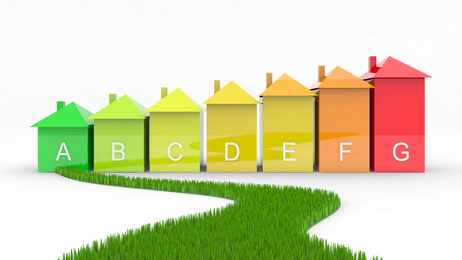Energy Performance Certificates (EPCs) are three words we are going to be hearing a lot of in upcoming months. These certificates were introduced in the UK and many other European countries back in 2007 and now Spain must follow suit.
Real Decreto (Decree) 235/2013, 5th April was approved and came into effect on the 13th April 2013 and will be fully enforced from 1st June 2013 but what exactly is the certificate for and who is obligated to obtain one?
The EPC is basically the result of an assessment that determines how energy efficient properties are, favouring the promotion of energy saving properties. You can compare it to the stickers we’re now used to seeing on fridges for example that show how much electricity per cycle you will save with a low energy model. A similar certificate will be issued on properties after elements such as loft insulation, domestic boilers, radiators, windows for double glazing, CO2 emissions etc are inspected. That same data is input on a computer program and the energy efficiency rate is determined. Obviously not all of these elements are relevant to us in the Canaries but nevertheless we must comply with this law as well.

Anybody who wishes to rent or sell a property after 1st June is obligated to obtain this certificate or face hefty fines. This law doesn’t only apply to private properties but to buildings, commercial units, offices and Local Administration offices too. The information provided on the EPC is useful for prospective buyers or tenants so they can choose whether they want a property with a poor energy rating or not and if a tenant requests a copy of the certificate, he cannot be refused. However, if you already have a valid rental contract with a tenant in your property before the cut-off date, you aren’t obligated to get the EPC until said contract expires. It is a different story for those of you currently selling your homes because from the cut-off date, notaries won’t be permitted to transfer title deeds unless the original EPC is produced.
So, if the above applies to you, how can you obtain the EPC? This certificate can only be issued by registered architects, engineers and technicians certified in Spain. Even though the decree doesn’t establish fees, it would seem that the unofficial cost is approximately 200€ per property and of course it is up to the home owner to foot the bill; in France, prices range between 150€ to 300€ and in Belgium up to 600€. In part, the purpose behind this law is to kick-start the flagging property industry and to generate employment for thousands of professionals who along with 25% of Spanish workers have unfortunately found themselves queuing up at unemployment offices.
The issuer of the EPC will also provide recommendations to improve the energy rating on your property, but don’t be alarmed as you won’t be obligated to carry them out because the certificate is for information purposes but it will supposedly increase your chances of renting/selling if the rating is improved. Once issued, the certificate must be registered within a 3 month period after the start date of this law by submitting it at the corresponding department in each Autonomous Region and is valid for a 10 year period but it is up to the owner to ensure that it is renewed come that time.
Estate and letting agents must also beware because they too can be fined if they advertise properties that do not possess an EPC. Any adverts whether in a window display or online must include a copy of the certificate so advise your clients that they must make arrangements quick sharp to obtain their EPC.
Official rates are yet to be established regarding penalties for not complying with this law but it has been implied that they will be between 300€ and 6.000€ so it is no laughing matter.
The end goal is to make us all more aware of the environmental impact our houses have and it has been said that all buildings constructed after 31st December 2020 must comply with near zero energy consumption.
The decree is about 16 pages long but the main aspects have been covered here.


